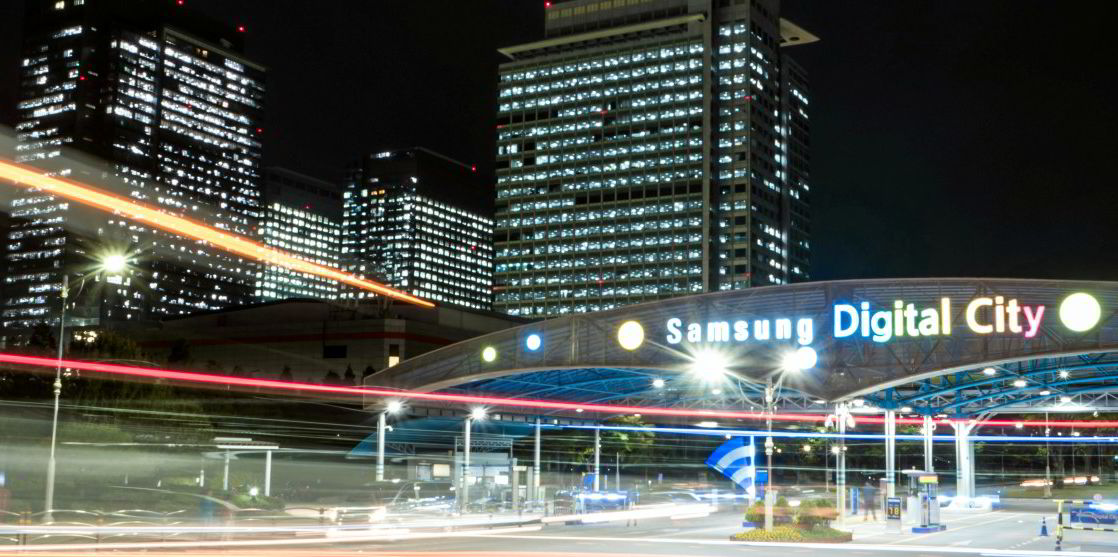Global electronics giant Samsung pledged a major renewable energy sourcing push as part of new environmental commitments – but admitted its South Korean home market will be one of hardest locations in which to green its operations.
Samsung Electronics said it aims to match its power needs with renewables by 2050 as part of a wider net zero push, as it outlined a more “proactive” renewables strategy that aims to cover all its non-Korean operations within five years.
“The company’s renewable energy sourcing methods will include, but not limited to, signing power purchase agreements (PPA), purchasing renewable energy certificates and participating in green pricing programmes,” Samsung Electronics said.
The company expects to cover power use in Southwest Asia and Vietnam this year, with Central and Latin America following in 2025 and Southeast Asia and Africa two years later.
In China, Europe and the US “which have already matched electric power use with renewable energy, Samsung Electronics plans to move towards expanding renewable PPAs”.
However, Samsung said the RE100 corporate renewables initiative, which it has joined as part of its green push, sees South Korea “as one of the most challenging” markets for corporate green power sourcing.
“This is in part due to the country’s renewable energy market, where procurement options for corporations have begun to expand but remain limited,” Samsung said.
“Additionally, the electric power needs of semiconductor manufacturing facilities have continued to increase with the expansion of Samsung Electronics’ production capacity to meet global demand.”
Corporate sourcing of renewables, initially led by IT-focused giants such as Google and Facebook, is now a priority for some of the world’s largest retail and manufacturing conglomerates.
Amazon led corporate renewables last year accounting for over 20% of a record 31.1GW of clean-power purchase deals inked by private companies around the world in 2021, according to data from BloombergNEF.



